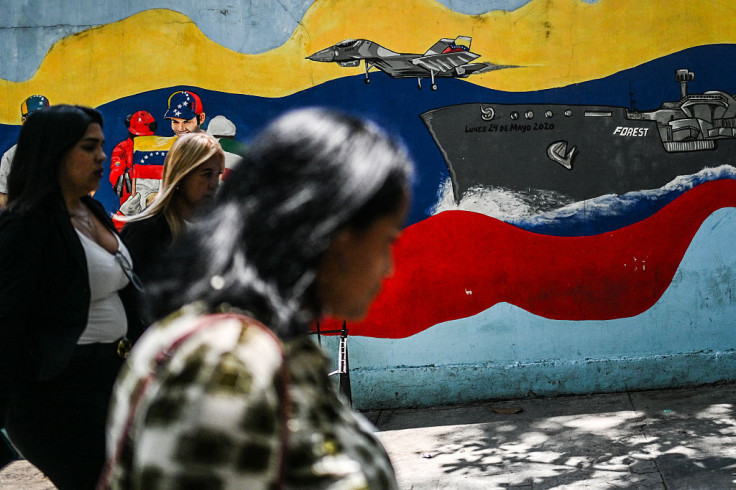
The United States announced it is intensifying military operations in Latin America, particularly near Venezuelan waters, with the creation of a new joint counter-narcotics task force. Secretary of Defense Pete Hegseth said the task force's primary mission is "to crush the cartels, stop the poison, and keep America safe."
"The message is clear: if you traffic drugs toward our shores, we will stop you cold," Hegseth wrote on X on.
At the President’s direction, the Department of War is establishing a new counter-narcotics Joint Task Force in the @SOUTHCOM area of responsibility to crush the cartels, stop the poison, and keep America safe. The message is clear: if you traffic drugs toward our shores, we will…
— Secretary of War Pete Hegseth (@SecWar) October 10, 2025
Since the United States launched a military strike on a Venezuelan vessel in early September, U.S. forces have carried out multiple strikes on small boats near the country's coastline. The operations, authorized by President Donald Trump to target drug trafficking organizations in the region, have resulted in at least 27 deaths.
While U.S. forces already deployed to South America continue to focus on vessels suspected of transporting drugs or cartel members, the new task force will broaden those efforts by targeting major trafficking networks across the region.
According to Reuters, the U.S. military's Southern Command, which oversees operations in Latin America, will lead the initiative. It will be supported by the II Marine Expeditionary Force, a rapid-response unit based at Camp Lejeune, North Carolina. Officials said the task force is designed to "synchronize and augment counter-narcotics efforts across the Western Hemisphere."
"By forming a task force around II MEF headquarters, we enhance our ability to detect, disrupt and dismantle illicit trafficking networks faster and at greater depth, together with our U.S. and partner-nation counterparts," said Admiral Alvin Holsey, head of Southern Command, in a statement reported by Reuters.
According to the outlet, it remains unclear whether the new task force will grant U.S. troops already stationed in the Caribbean any additional authorities, as President Trump considers striking suspected drug trafficking sites inside Venezuela.
In a statement, Marine Lieutenant General Calvert Worth, who leads the II MEF and will command the task force, suggested the mission remains focused on maritime operations.
"This is principally a maritime effort, and our team will leverage maritime patrols, aerial surveillance, precision interdictions and intelligence sharing to counter illicit traffic, uphold the rule of law and ultimately better protect vulnerable communities here at home," Worth said.
The repeated threats from the Trump administration, along with multiple U.S. airstrikes on Venezuelan vessels, have triggered an increasingly aggressive response from Nicolás Maduro. Over the weekend, he called on Indigenous peoples across South America to organize "brigades" to defend Venezuela from what he described as a growing threat from the United States.
Speaking at a ceremony marking the Day of Indigenous Resistance, which replaced Columbus Day in Venezuela, Maduro urged unity among what he called "the popular, military and police forces" to defend national sovereignty.
"The order is given, to win peace and exercise permanent sovereignty in our territory and seas," Maduro said on Sunday. Wearing a colorful feathered headdress, he declared, "We are an indestructible people, preparing to win peace, peace with freedom, sovereignty and independence."
✊Pdte. Nicolás Maduro ordenó acelerar la expansión de la Milicia Bolivariana Indígena en todo el país y formar brigadas internacionalistas con pueblos indígenas de Suramérica para defender a Venezuela. pic.twitter.com/k4Du68AKzF
— arocha (@pueblopatriota) October 13, 2025
As Maduro escalates his rhetoric, analysts say the United States' military campaign may be driven more by political objectives than by drug interdiction.
Experts consulted by The New York Times said the Trump administration's strikes appear aimed at weakening Maduro's hold on power. The outlet reported that the attacks "may instead be intended to put pressure on Venezuela's president, Nicolás Maduro, or end his rule altogether."
© 2025 Latin Times. All rights reserved. Do not reproduce without permission.





